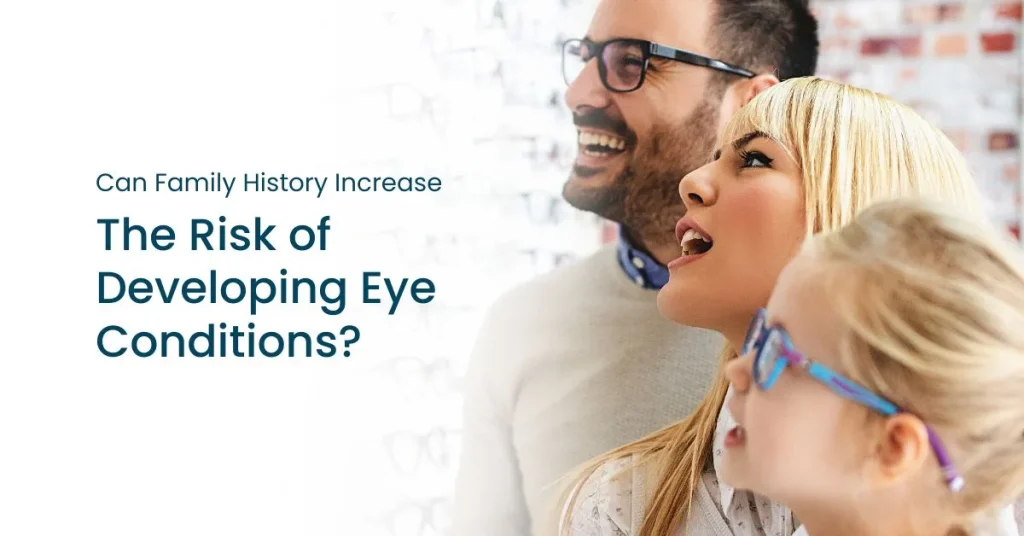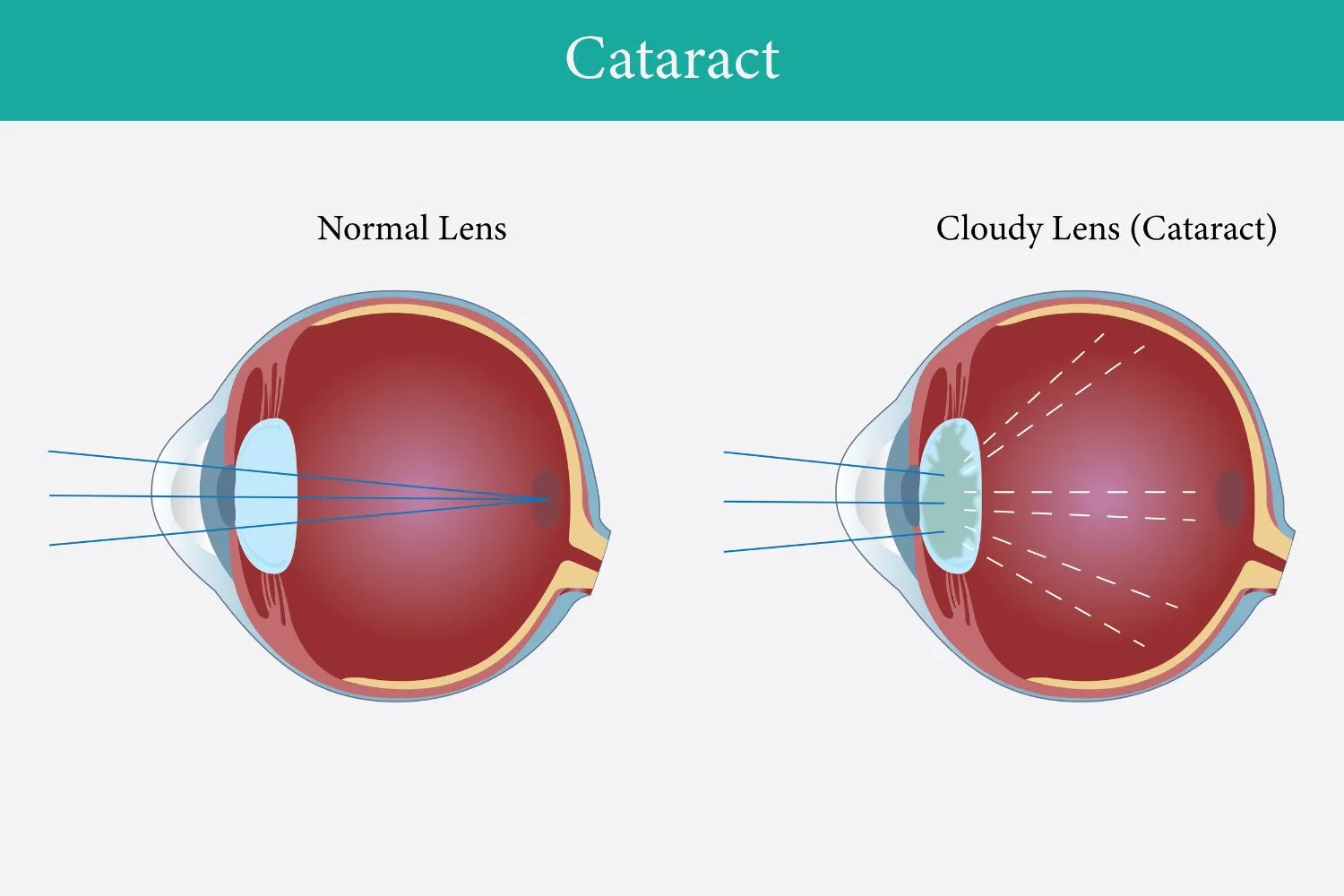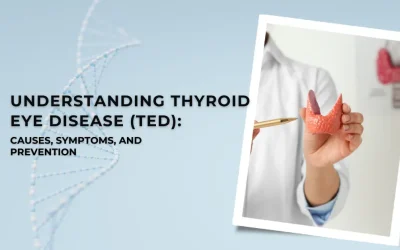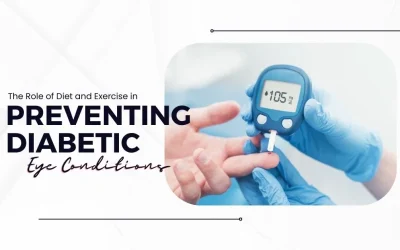Can Family History Increase the Risk of Developing Eye Conditions?

Your genes are a major component in your eye health as well as lifestyle factors like UV exposure and screen usage. Hereditary factors play a role in many eye problems, so you may be more susceptible to acquiring certain conditions if they run in your family.
1. Genetics’s Contribution to Eye Health
Many aspects of our health, especially our eyes, are influenced by genetics. Certain eye disorders can be inherited, much like eye colour. This inheritance can occur from one generation to the next. You should be aware that your chances of getting the same eye condition may be increased if a close relative, like a parent or sibling, has been diagnosed with one.

2. Typical Eye Disorders Associated with Genetics
There are some eye illnesses where a family history has a stronger correlation than others. Now let’s examine some of the most prevalent inherited eye disorders:
Glaucoma
One of the main causes of blindness is glaucoma, which frequently runs in families. Having a parent or sibling who has glaucoma increases your risk of getting the condition by a large margin. Since glaucoma often exhibits no early symptoms but can cause irreparable damage if left untreated, routine eye exams and early detection are essential.
Macular Degeneration
Another ailment with a significant hereditary component is age-related macular degeneration (AMD). Your odds of getting AMD may be increased if a member of your family has the disease, especially if they are first-degree relatives. Although those over 50 are most affected, a family history may hasten the disease’s start.
Cataracts

Even while age is the main risk factor for cataracts, other hereditary factors may increase your susceptibility. Before the age of fifty, cataracts with an early onset are frequently inherited. Being aware of the history of cataracts in your family will enable you to take early preventive action.
Retinitis Pigmentosa
An uncommon, hereditary condition called retinal pigmentosa damages the retina and can cause loss of peripheral vision and night blindness. Genetic testing and counseling are strongly advised if this problem runs in your family.
3. Why Timely Diagnosis Is Crucial
Regular eye examinations are especially important if any of these disorders run in your family. The strongest defence against many genetic eye illnesses, such as AMD and glaucoma, is early detection through annual screenings. These diseases often proceed without visible symptoms in their early stages.
In order to prevent or reduce the advancement of the disease, eye specialists can evaluate your eye health over time, check for early indicators of genetic disorders, and propose therapies including lifestyle modifications, medication, or even surgery.
4. What You Can Do: Preventive Measures
Even if you have a family history of eye conditions, there are steps you can take to protect your vision:
- Regular Eye Exams: Schedule comprehensive eye exams annually, especially if you have a family history of eye diseases.
- Healthy Lifestyle: Maintain a diet rich in omega-3 fatty acids, antioxidants, and vitamins to support eye health. Avoid smoking, as it increases the risk of several eye conditions.
- Protect Your Eyes: Wear sunglasses that block UV rays, and take breaks during screen time to reduce eye strain.

Your possible risks for eye health can be inferred from your family history. Regular exams and preventive steps can help you retain your vision even when heredity may predispose you to certain diseases. Speak with an eye care specialist to develop a plan for keeping an eye on things and safeguarding your vision if you are aware that eye diseases run in your family.
Book your appointment now for all eye-related services.
Your Vision Our Focus


